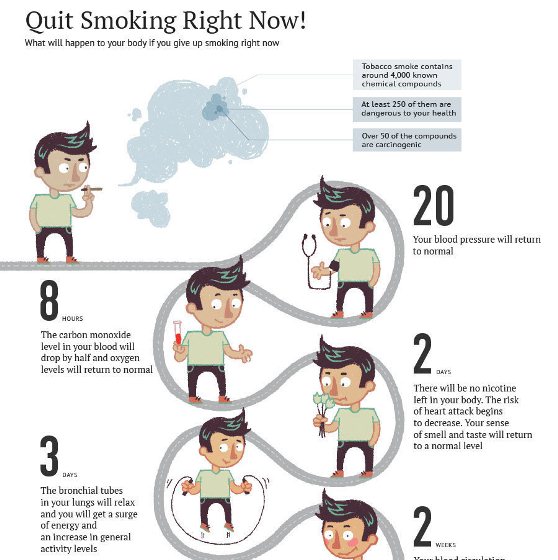The thing that most people dread about quitting smoking is the withdrawal. The side effects of quit smoking withdrawals are different for each person, but they can be very uncomfortable and disruptive. In fact, the symptoms can be so painful and annoying that people will often lose their resolve and go back to smoking, even though they know perfectly well how dangerous their bad habit is.
However, there are ways to make the quit smoking withdrawals easier to cope with. You don’t have to struggle with the withdrawal side effects on your own. Before you quit smoking, it’s helpful to know what symptoms to expect and why your body reacts in this way. Most importantly, you must realize that the symptoms are short-lived and there are many treatments available to ease the discomfort you may feel.
Some of the most common withdrawal symptoms include cravings, restlessness, headaches, and dizziness. Feelings of anxiety, depression, irritability, and anger are possible. You may have trouble concentrating and feel very fatigued. You might also experience constipation, gain, and other physical symptoms.
If you happen to have any of these side effects, keep in mind that they will only last a short time. There are ways to treat the quit smoking withdrawals so that the discomfort is less intense. If you can just tolerate the withdrawal symptoms for a little while, you will succeed in quitting smoking and you will be a happy non-smoker for the rest of your life.
The longer you are able to go without a cigarette, the more likely you will stay smoke-free forever. You will find that the withdrawal symptoms usually strike within the first 48 hours of quitting and can last for anywhere from two days to a week. If you can tough it out for the first week after quitting, you will find it fairly easy to continue to stay away from smoking. But if the withdrawal symptoms defeat you and you succumb to the urge to smoke, you will have to go through the entire quitting and withdrawal process again.
The trick to getting through the quit smoking withdrawals is to know what symptoms to expect and to find ways to deal with those symptoms. It’s not a bad idea to talk to your doctor about treatments. He or she may be able to prescribe a medication that will relieve your unpleasant symptoms.
 | So what if it is really that easy? What if all your beliefs about how hard it is going to be to quit are completely false? What if, after just one session of hypnotherapy or NLP you find it incredibly easy to become and remain a happy, confident non-smoker for life? The reason why hypnotherapy & NLP are so successful is because both our beliefs about smoking and our habitual smoking behaviours reside within your unconscious mind. So whilst consciously we may wish to quit, all too often our all powerful unconscious mind simply would not let us. Check out Quit Smoking Today now. |
When you’re trying to stop smoking, don’t be afraid to ask for support from others if you need it. Most of all be sure to have a plan in place to deal with quit smoking withdrawals. Then you are likely to succeed in breaking the smoking habit.



